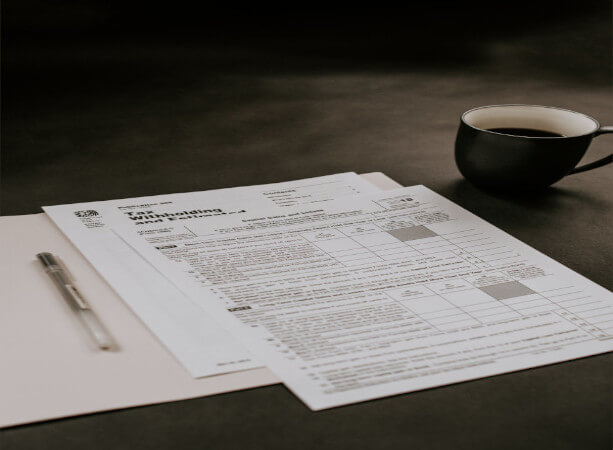Day: October 26, 2021
How Should Employers Respond to Workplace Injuries?
Serious workplace injuries happen every day across America. No employer wants to see employees injured while doing their jobs. Unfortunately, accidents happen no matter how much you try to avoid them, but if you are prepared, you will know what to do. Understanding workplace injuries, taking preventative measures to avoid them, and developing a plan of action in response to an injury are all “must-dos” for good employers. Need to make a Work Injury Report? Properly record what happened in a simple interview form. We make it affordable and simple. Get started now What are the most common workplace injuries? The most common workplace injuries are some of the most preventable. Careful planning can help workers avoid injuries that can affect them for the rest of their lives. 1. Slips, trips, and falls Falls make up roughly one-third of all injuries in the workplace. They are the number one cause of workers’ compensation cases across the United States. Although a trip or slip may seem minor, they can result in serious head or neck injuries, broken bones, or a lot of other health problems. 2. Working with machinery A machinery accident is not unusual in a factory, construction, or farm setting, but it can happen any place where workers engage with heavy machinery. Getting your body caught in moving equipment can result in long-term debilitation. 3. Vehicle-related accidents Car accidents happen every day. Some are the result of employees spending time on the road for work-related reasons. Other injuries occur when workers are struck by moving vehicles in a work setting, such as in a warehouse or shipping/receiving area. 4. Fires and explosions Fires and explosions do not happen often, but when employees work with combustible materials, those workplace accidents can be severe—affecting multiple workers at one time. Burns and
Read MoreKeep Renters From Burning Down Your Property on the 4th of July
Independence Day celebrations are almost here, and with them comes the risk of accidents and fires. While most people take precautions, landlords have an additional worry when it comes to their tenants. Here are some property management techniques that can help prevent or reduce property damage and personal injuries caused by fireworks and fire on the 4th of July. Lease Confidently with Rocket Lawyer Get all the legal help you need to manage your property. Anytime. Anywhere. Get started now Can you stop renters from setting off fireworks on your property? There are two ways to potentially stop renters from shooting off 4th of July fireworks on your property. One is through your lease and the other involves local laws. Your lease may have a list of rules or it may refer to a separate list of rules, like zoning or homeowners association bylaws. For example, a lease at a multifamily home may refer to separate community rules for things like pool hours. Your lease or the rules themselves may give you the authority to modify these rules at any time. This is useful because a fireworks clause is not a common lease term. If your lease enables you to make rules, you can notify your tenants in advance of the holiday that fireworks are not allowed on the property. Many local laws and ordinances also prohibit fireworks. A reminder is enough to stop many tenants from using fireworks. If your tenants break these laws, especially if it disturbs other people or causes property damage, you may have the right to evict for illegal activity. You can use the Rocket Lawyer Eviction Process Worksheet to determine whether you can evict and what steps you can take. Keep in mind that local laws will vary on whether setting off fireworks is
Read MoreHow To Pay Employees for 4th of July
While we all may agree that the Fourth of July is a joyous time of year, for small business employers, it can also be confusing. After all, the Fourth of July is a federal holiday, and employers and employees often wonder whether holiday pay, time and a half, or maybe even double time pay is required. Below, you’ll learn about how to pay employees on the 4th of July. Need pay and benefits documents for your employees? Put your compensation and time off policies in writing. We make it affordable and simple. Get started now How does holiday pay work for Independence Day? There is no federal law requiring private employers or small businesses to pay employees time and a half on Independence Day, and that’s true for any other holiday. Federal, state, and local government employees are usually provided time off or paid overtime for work on the Fourth of July. So that means how holiday pay works will depend on state labor laws and an employer’s policies. Most businesses only have to provide holiday pay or time off if they have a policy or common practice of paying overtime or providing paid time off on holidays. When it comes to state laws, there are only two states that require holiday pay, and both include Independence Day in their list of holidays: Massachusetts and Rhode Island. For more information about these state’s holiday pay rules, ask a lawyer or visit the labor department website for each state: MassachusettsRhode Island re workers paid time and a half or double time for overtime on the Fourth of July? Outside of government employment, and Massachusetts and Rhode Island, unless an employer has affirmatively agreed to pay overtime or double time for all hours worked on holidays, then this is entirely up to
Read MoreShould I Sign a Prenuptial Agreement?
Many people believe a Prenuptial Agreement, or prenup, is a bad idea because it implies they are planning on a divorce at the same time they’re planning a wedding. But the truth is, a Prenuptial Agreement protects both spouses financially in case of divorce, disability, or death. Here, we answer some common questions about Prenuptial Agreements. Want to make a Prenuptial Agreement? Prepare a financial agreement that covers assets, debts, and children. We make it affordable and simple. Get started now Should I sign a Prenuptial Agreement? Being financially responsible is important for everyone. A Prenuptial Agreement can help protect each party’s current assets and ensure both spouses remain responsible for the debt they brought into the relationship. If either partner has children from a prior relationship, a Prenuptial Agreement can help ensure their financial stability as well. Prenuptial Agreements protect both partners, and they are helpful in the event a marriage does end in divorce. And it’s far easier to negotiate a financial arrangement that works for both parties while you’re communicating well, rather than waiting until your relationship becomes contentious. What happens if I don’t sign a prenup? State law prevails when there is no Prenuptial Agreement. For couples who live in states that adhere to community property laws, this means that most assets or liabilities accumulated during the marriage would be divided equally between the parties. However, individuals are able to retain assets they brought into the marriage and kept separate. In states that don’t follow community property principles, distribution of assets normally follows a process called “equitable distribution.” In these states, multiple factors are taken into consideration to ensure property is distributed in a fair way between divorcing parties. Either way, it is helpful to have a Prenuptial Agreement ahead of time that allows you to
Read More








